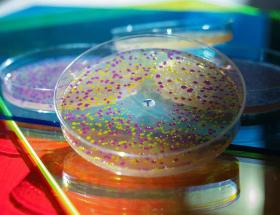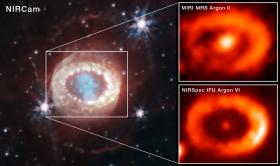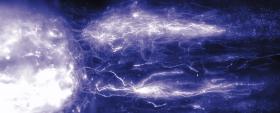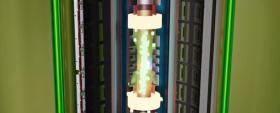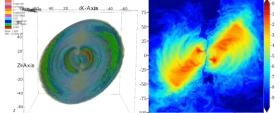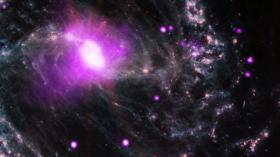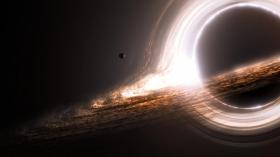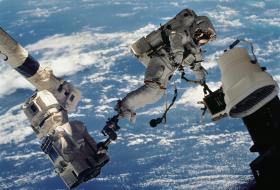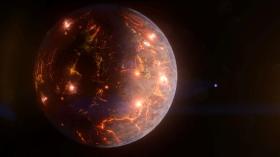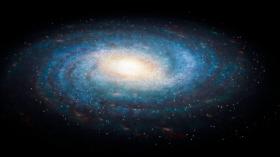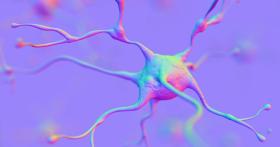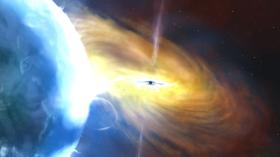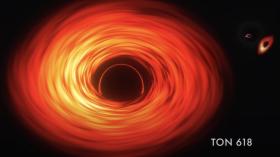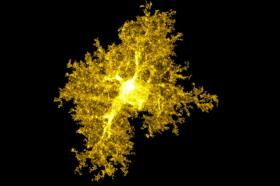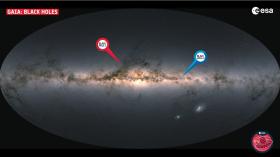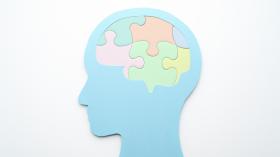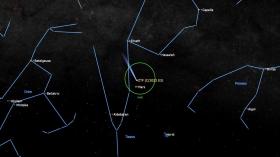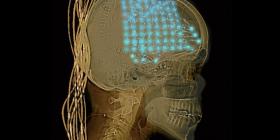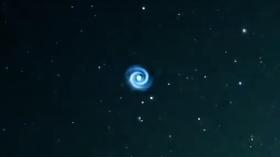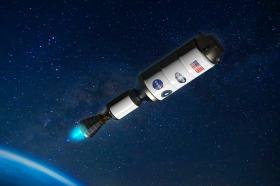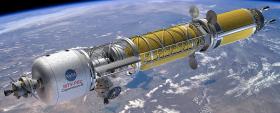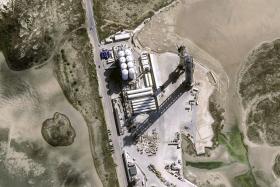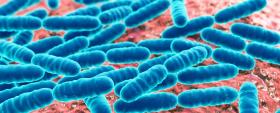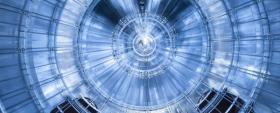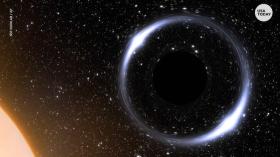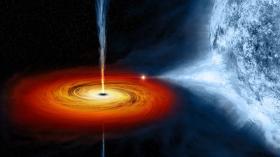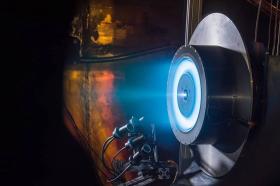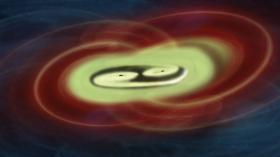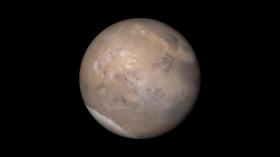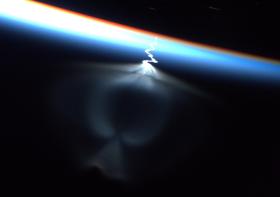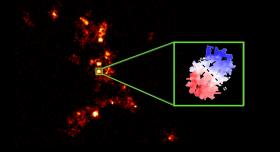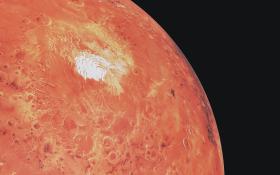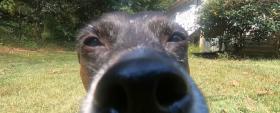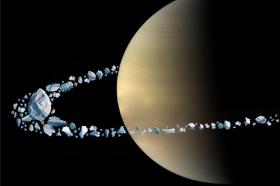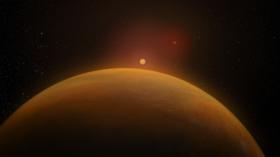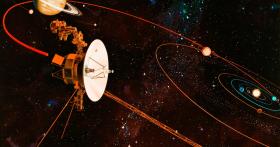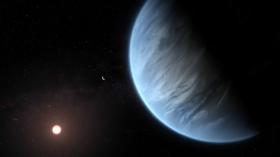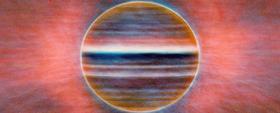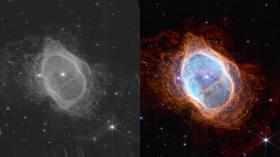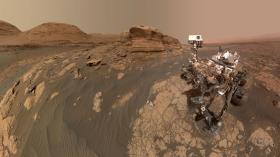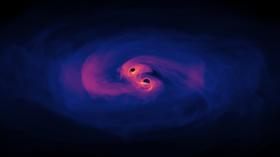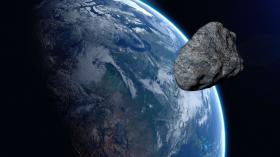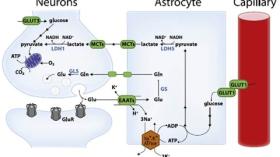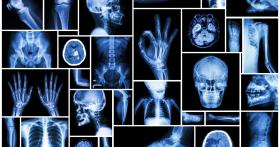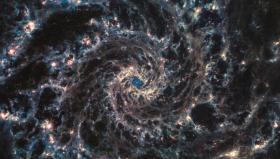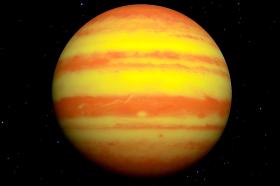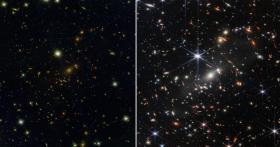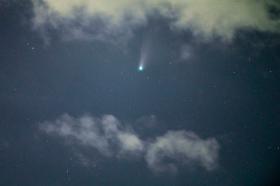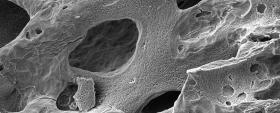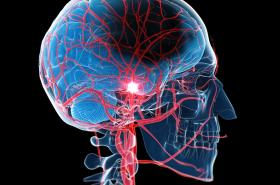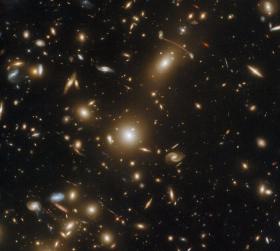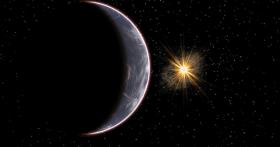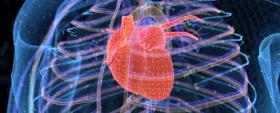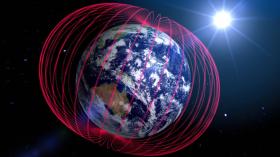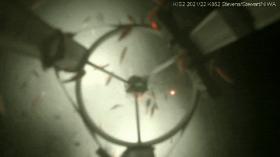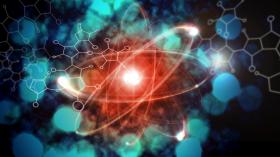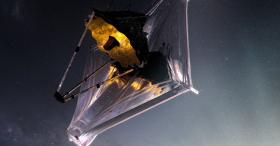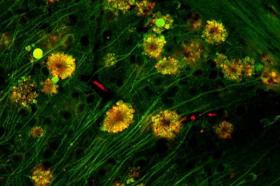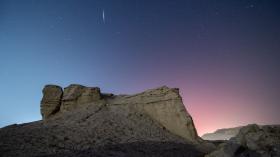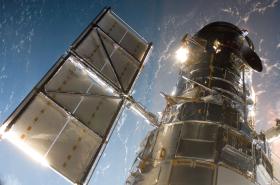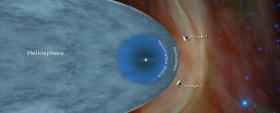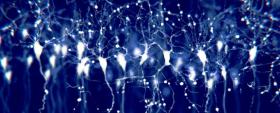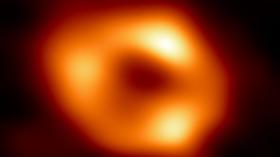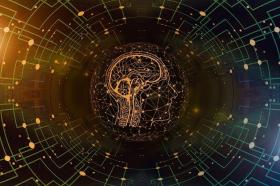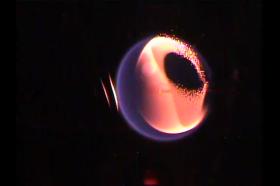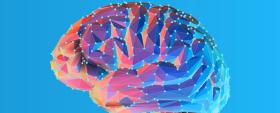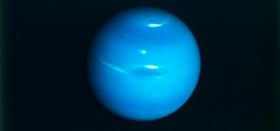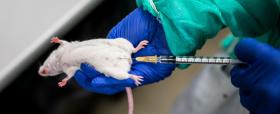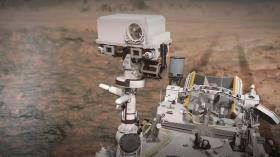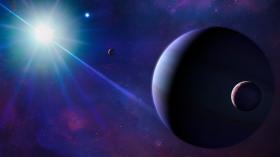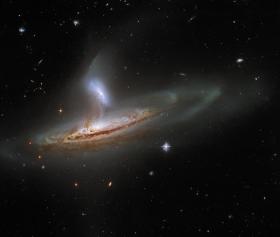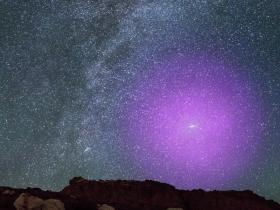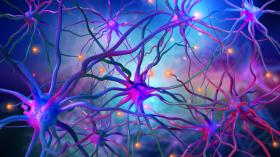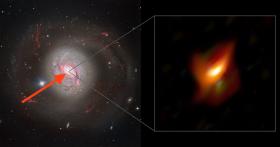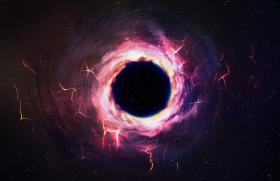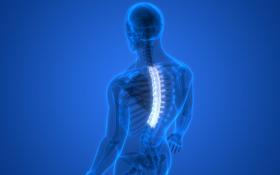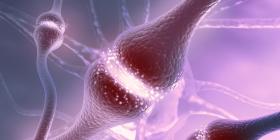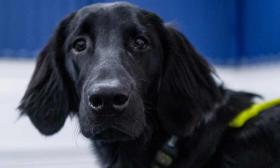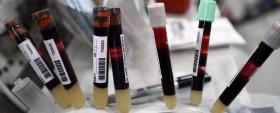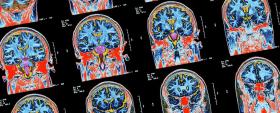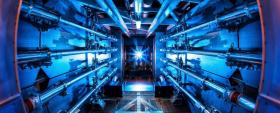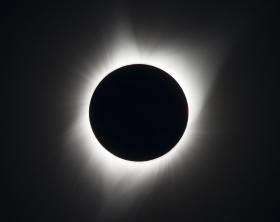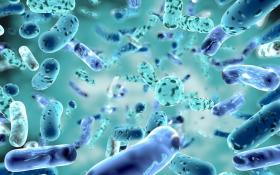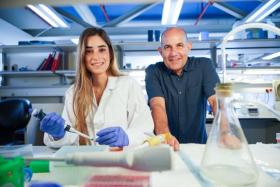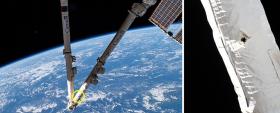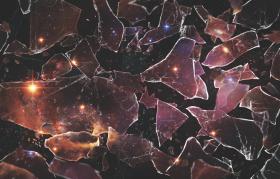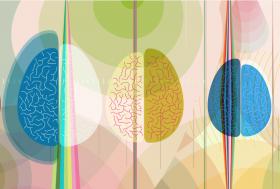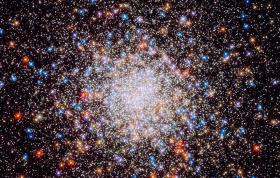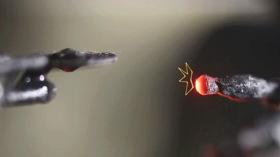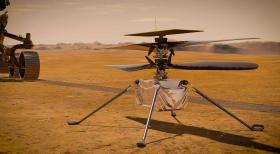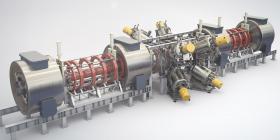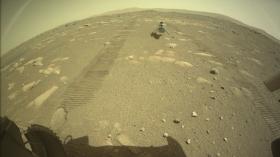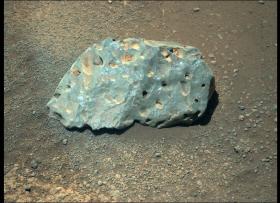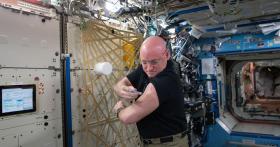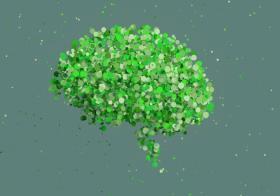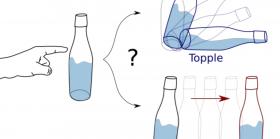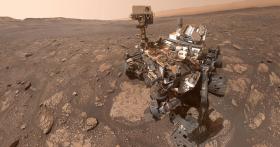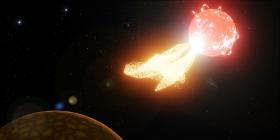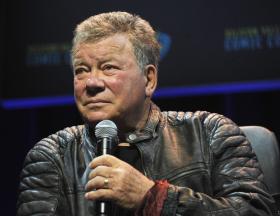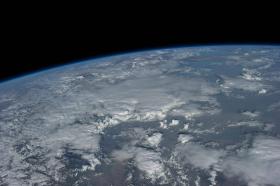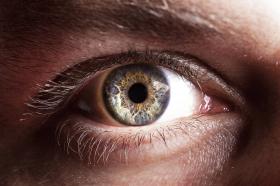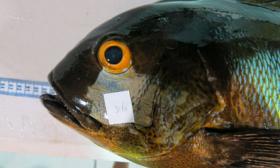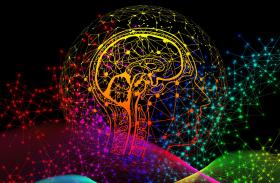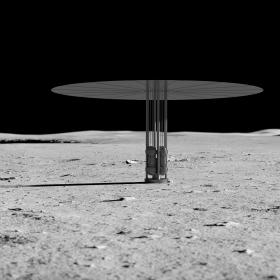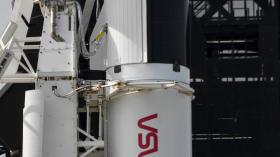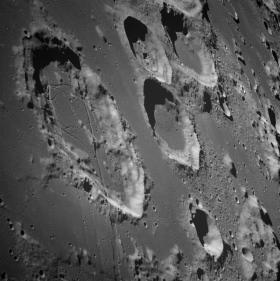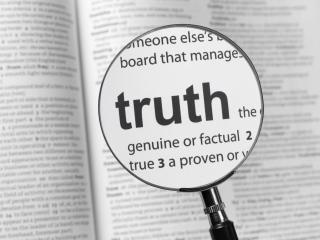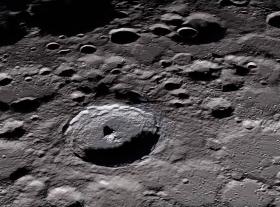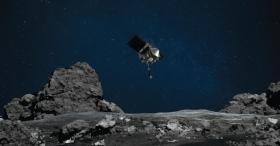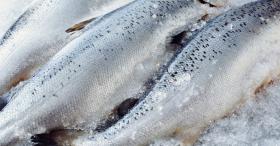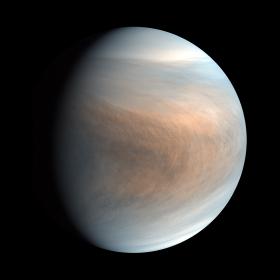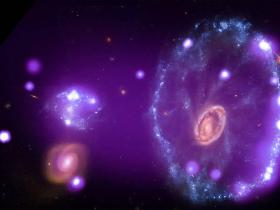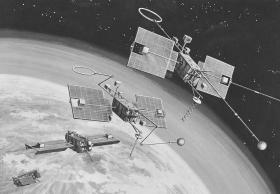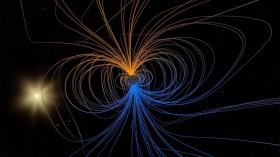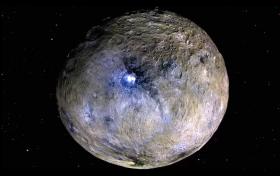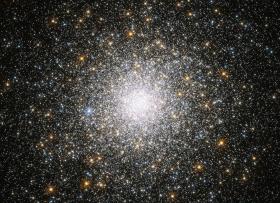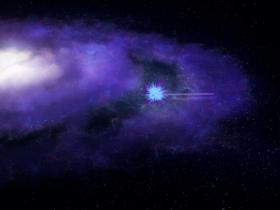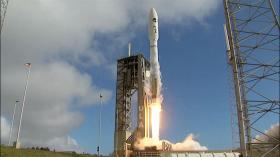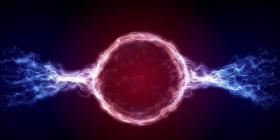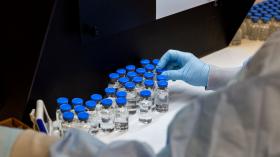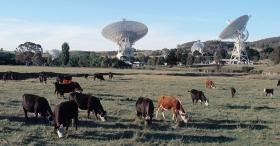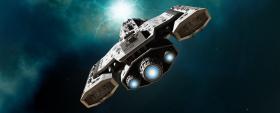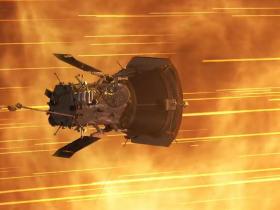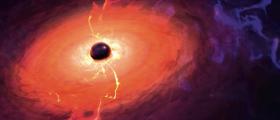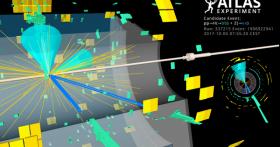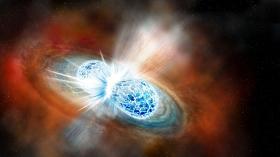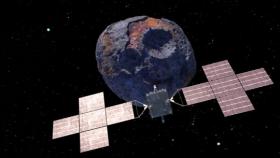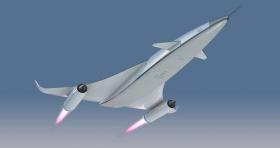#ScienceNews
Science & Technology | SCIENCE
Non-antibiotic drugs may cause antibiotic resistance
Numerous nonantibiotic drugs have potent antibacterial activity and can adversely impact the human microbiome. The mechanistic underpinning of this toxicity remains largely unknown. We investigated the antibacterial activity of 200 drugs using genetic ...
Science & Technology | Science
James Webb Space Telescope spots neutron star hiding in supernova wreckage
Using the James Webb Space Telescope, astronomers spotted a neutron star in Supernova 1987A, the aftermath of a stellar explosion in the Large Magellanic Cloud.
Science & Technology | Science & Technology
It's Official: Scientists Confirm What's Inside The Moon
Well, the verdict is in.
Science & Technology | Science
Amazing Advance in Spinal Repair Allows Injured Mice to Walk Again
Researchers have reversed 'irreversible paralysis' in mice with complete spinal cord injuries using gene therapy.
Science & Technology | Science
Mind-Blowing Experiment Reveals Antimatter Falls in Gravity
As far as gravity is concerned, both matter and its charge-flipped 'mirror' twin, antimatter, deserve a big, warm hug.
Health & Fitness | Psychology!
Groundbreaking MIT study challenges conventional science about sleep
Many people report experiencing increased energy, emotional stability, and a greater sense of well-being when they get more sleep
Science & Technology | Science
Twists in Spacetime Might Explain Some of The Brightest Objects in The Universe
A 3D model of a black hole's erratic feeding pattern reveals a potential explanation for the bizarre behavior of quasars with a dimmer switch.
Science & Technology | Science
TOUCHDOWN! NASA Just Returned to Earth With The Largest Asteroid Samples Ever
A seven-year space voyage came to its climactic end Sunday when a NASA capsule landed in the desert in the US state of Utah, carrying to Earth the largest asteroid samples ever collected.
Science & Technology | Science
Powerful observatories reveal 5 breathtaking corners of the universe hidden to human eyes (images)
NASA has highlighted a new set of vibrant cosmic images, each one painted by the observatories that help us see what our eyes cannot.
Science & Technology | Science
Physicists discover what lies beyond a black hole's event horizon
Gravity exists in three dimensions within a black hole's geometry, whereas particle physics resides on its surface in two dimensions.
Science & Technology | Science
Quantum computers could overtake classical ones within 2 years, IBM 'benchmark' experiment shows
A new experiment by IBM computers shows that quantum computers could soon outperform classical digital computers at practical tasks in the next two years.
Science & Technology | Science
White Dwarf Star Enters Its Crystallization Era, Turning Into A 'Cosmic Diamond'
To us, stars may resemble cut jewels, glittering coldly against the velvet darkness of the night sky.
Science & Technology | Science
After Going to Space, You Need to Spend At Least Three Years on Earth Recovering From Brain Damage
A new study shows and it can take as long as 3 years on Earth to recover from brain swelling suffered in space.
Science & Technology | Tech
AI is helping astronomers make new discoveries faster than ever before
AI and neural networks have greatly sped up astronomers' work, allowing them to work through massive amounts of data thoroughly, which would have been near impossible by human effort alone
Science & Technology | Science
12 Billion Miles Away: NASA’s Voyager 2 Continues Science Quest With Innovative Power Strategy
The plan will keep Voyager 2’s science instruments turned on a few years longer than previously anticipated, enabling yet more revelations from interstellar space. Launched in 1977, the Voyager 2 spacecraft is more than 12 billion miles (20 billion kilome
Science & Technology | Science
The Milky Way galaxy may be a different shape than we thought
New measurements suggest that the traditional view of the Milky Way as a galaxy with four major spiral arms could be wrong.
Science & Technology | Science
Neuroscientists Finally Understand An Elusive Mechanism Involved in Memory Creation
Researchers may have pinpointed the spot where brains store memories, which could help develop new neurological drugs.
Science & Technology | Science
Boom! Astronomers just watched the largest explosion in space rage for 3 years
The blast lasted for three years and is over ten times as powerful as the brightest supernova .
Science & Technology | Science & Technology
NASA's black hole animation is jaw-dropping
NASA released a new black hole animation that shows the colossal size of black holes compared to our solar system and other cosmic objects.
Science & Technology | Science & Technology
The Brain’s Support Cells May Play a Key Role in OCD
A newly discovered cellular mechanism that involves astrocytes, as well as neurons, appears to be involved in repetitive behaviors and OCD.
Science & Technology | Science
2 newfound black holes are the closest ever to Earth and like nothing seen before
The two black holes lie just 1,560 and 3,800 light-years from our planet, respectively.
Science & Technology | Israeli Innovation
Israeli scientists test new approach to treat Alzheimer's
Researchers develop molecule that helps prevent the reduced metabolic mechanism associated with disease, preventing cognitive skill decline in mice.
Science & Technology | Science
'Hidden' planet at edge of our solar system could be five times the size of Earth
Scientists believe that a huge planet which has never been seen by astronomers could be lurking, almost invisibly, at the dark edges of our solar system.
Science & Technology | Science
See the green comet near Mars in the night sky this week
Comet C/2022 E3 (ZTF) will be close to Mars in the Taurus constellation from Feb. 9 through Feb. 14, making it easier to locate as it dims in the night sky.
Science & Technology | Science
Neuroscientists listened in on people’s brains for a week. They found order and chaos.
The study shows that our brains exist between chaos and stability—a finding that could be used to help tweak them either way.
Science & Technology | Science & Technology
Japanese telescope captures mysterious blue spiral in Hawaii
A Japanese telescope camera captured a 'flying spiral' in Hawaii shortly after SpaceX launched a new satellite.
Science & Technology | Science & Technology
NASA and DARPA will test nuclear thermal engines for crewed missions to Mars
Nuclear thermal rocket engines could help get astronauts to Mars more quickly than by chemical propulsion methods.
Science & Technology | Science & Technology
New NASA Nuclear Rocket Plan Aims to Get to Mars in Just 45 Days
We live in an era of renewed space exploration, where multiple agencies are planning to send astronauts to the Moon in the coming years.
Science & Technology | Science
Rare 'green pea' galaxy may be the most 'chemically primitive' galaxy ever discovered
A 'green pea' galaxy seen in an early James Webb Space Telescope image may be the most chemically primitive galaxy ever discovered.
Science & Technology | Science
SpaceX's giant Starship rocket spotted from space by satellite (and poses for epic photos, too)
SpaceX is getting Starship ready for its first-ever orbital test flight.
Science & Technology | Science & Technology
Bacteria Inside You May Explain Why Weight Piles on After Dieting
Restricting our food intake can result in a range of health benefits, including reducing the risk of obesity.
Science & Technology | Science
Physicists Have Achieved The Smallest Measurement Yet of a Ghost Particle's Mass
Earlier this year, decaying isotopes of hydrogen gave us the smallest measurement yet of the mass of a neutrino.
Science & Technology | Science
At just 1,600 light-years away, this is now the closest known black hole to Earth
The dormant black hole, dubbed Gaia BH1, sits 1,600 light-years away, three times closer than the last black hole to hold the record.
Science & Technology | Science
NASA X-ray observatory reveals how black holes swallow stars and spit out matter
A joint NASA/Italian space mission has put its sunglasses on to observe polarized X-ray light from a corona of hot gas around the Cygnus X-1 black hole.
Science & Technology | Science
Breakthrough rocket engine could travel at 99% the speed of light
When it comes to space, there's a problem with our human drive to go all the places and see all things. A big problem. It's, well, space.
Science & Technology | Science
One of the most extreme black hole collisions in the universe just proved Einstein right
The black hole twisted 10 billion times faster than any ever observed.
Science & Technology | Science & Technology
Astronomers Witness Light Delayed by Almost 7 Years as It's Warped by a Galaxy Cluster
Way back in 1979, astronomers spotted two nearly identical quasars that seemed close to each other in the sky. These so-called 'Twin Quasars' are actually separate images of the same object.
Science & Technology | Science & Technology
Astronomers Unveil Technique For Finding Exoplanets And Any Signs Of Life On Them
Exoplanets around white dwarf stars are particularly hard to find. But a new method involving the James Webb Space Telescope could soon reveal them
Science & Technology | Science
New evidence for liquid water on Mars suggests the planet is geothermally active
Martian ice caps dip and rise and it may be evidence of liquid water lurking underneath them But what keeps that water from freezing?
Science & Technology | Science & Technology
This is what a rocket launch looks like from space
Astronauts aboard the International Space Station have captured images of Wednesday's rocket launch to the station involving three crew members.
Science & Technology | Science & Space
A Galaxy With Ten Times the Mass of the Milky Way is Preparing to Become a Quasar
New research by an international team of scientists has revealed new insight into how rare, dusty galaxies evolved during the early Universe.
Science & Technology | Science
James Webb's first photo of Mars reveals new data about the Red Planet
James Webb has captured its first photo of Mars alongside an atmosphere composition test, providing new data about our neighboring planet.
Science & Technology | Israeli Innovation
Fixing weak electric current in part of brain may treat Parkinson’s -- Israeli lab
University of Haifa scientist says her peer-reviewed study could open up a new approach to fighting the disease, enable detection when people are young
Pets & Animals | Pets & Animals
Fascinating Study Gives a Unique Glimpse Into How Dogs See The World
Putting cute dogs in an MRI machine and watching their brains while they watch home movies might sound like a rollicking good time just for its own sake.
Science & Technology | Science
Saturn's rings finally explained after over 400 years
Since the time of Galileo, Saturn's rings have remained an unexplained mystery. A new idea may have finally solved the longstanding puzzle.
Science & Technology | Science
Discovery of alien world with tilted orbit puzzles astronomers | Space
The 3D modeling of a planet's orbit around a star in a binary star system is raising new questions about how both gas giant planets and binary stars form.
Science & Technology | Science
NASA gets Voyager 1 talking again — and discovers a new mystery
14.6 billion miles from one another, NASA engineers have found and fixed a computer glitch that had caused Voyager 1 to transmit garbled telemetry data since May.
Science & Technology | Science & Technology
Scientists discover colossal ocean may completely cover this planet
Astronomers recently announced that the exoplanet TOI-1452 b is close in size to Earth and lies in a region of its solar system where liquid water could exist.
Science & Technology | Science & Space
Marvel at the James Webb Space Telescope's largest image of the cosmos yet
The latest James Webb Space Telescope treasure trove contains ancient galaxies and countless cosmic wonders.
Science & Technology | Science & Technology
Scientists Have Found A New Way to Detect Alien Worlds Beyond Our Solar System
We have discovered thousands of exoplanets in recent years.
Science & Technology | Science
Are the Colors in Webb Telescope Images 'Fake'?
Humans can't see infrared light, so what makes Webb Space Telescope images so dazzling?
Science & Technology | Science
The Curiosity rover has been exploring Mars for 10 years. Here's what we've learned.
Curiosity landed on Mars on Aug. 5, 2012, with one main goal: to determine whether the planet was once habitable. In 10 years, it has answered that question and many others, even as it has inspired ne
Science & Technology | Science
Why gravitational waves are the future of astronomy
We only detected our very first gravitational wave in 2015. Over the next two decades, we'll have thousands more.
Science & Technology | Science
Two skyscraper-size asteroids are barreling toward Earth this weekend
Two asteroids, 2016 CZ31 and 2013 CU83, are headed toward Earth for back-to-back flybys this weekend.
Science & Technology | Science
We might have Alzheimer's all wrong
For over 30 years, toxic proteins were thought to cause Alzheimer’s. However, recent studies suggest it might be metabolic reprogramming.
Science & Technology | Science
Humans are evolving a new artery
More humans are being born with a third arm artery, an example of microevolution happening right before our eyes.
Science & Technology | Science
James Webb Space Telescope's stunning 'Phantom Galaxy' picture looks like a wormhole
A fresh image based on brand-new deep-space data appears to show a wormhole spinning before our very eyes.
Science & Technology | Israeli Innovation
Israeli Researchers Lead Team That Finds Two New Planets
Team from Tel Aviv University uses AI to detect new worlds that are more than 600 light years away from Earth
Science & Technology | Science
Comparing Hubble to James Webb: The Difference in Detail is Astounding
Comparing the observations of James Webb and Hubble of the same area of space shows just how much more resolution Webb brings to the table.
Science & Technology | Science
The Largest Comet Will Come Close to Earth on July 14, Here’s How to See It
The biggest comet is getting closer to Earth and you don't want to miss it. A comet is fast approaching the planet Earth and it's one of the largest that has ever been spotted, according to Popular Mechanics.
Science & Technology | Science
New Study Reveals Devastating Effect on Astronaut Bones From Living in Space
Astronauts lose decades' worth of bone mass in space that many do not recover even after a year back on Earth, researchers said Thursday, warning that it could be a "big concern" for future missions to Mars.
Science & Technology | Science
‘Could Revolutionize Stroke Treatment’: Researchers Discover Breakthrough Treatment For Stroke
"It is very easy to administer, which makes it a game changer when seconds count to save brain cells."
Science & Technology | Science
This galaxy cluster is so massive it warps space-time and bends light
An image from the Hubble Space Telescope shows a galaxy cluster named Abell 1351, so unimaginably massive it is bending space-time itself.
Science & Technology | Science
Planet Nine: The answer to this cosmic mystery may come sooner than you think
Is it a planet, a black hole, or a group of planets? One astronomer has an ambitious idea to find out.
Science & Technology | Science & Technology
The Human Heart Can Repair Itself, And We Now Know Which Cells Are Crucial For It
Our bodies are pretty ingenious when it comes to self-repair, and scientists have been studying in detail the ways in which the heart patches itself up after a heart attack (myocardial infarction). They hope to find clues that could lead to better
Science & Technology | Science
Earth's magnetic poles probably won't flip soon, after all
A mysterious anomaly had sparked speculation of polarity reversal.
Science & Technology | The Ocean & The Environment
Discovery of 'hidden world' under Antarctic ice has scientists 'jumping for joy'
Researchers in Antarctica have discovered a hidden ecosystem more than 1,600 feet below the ice, filled with shrimp-like creatures.
Science & Technology | SCIENCE
Scientists discovered a never-before-seen particle and it could be dark matter
Physicists have discovered a new, mysterious particle that they believe could be a candidate for dark matter.
Science & Technology | Science
NASA’s new powerful space telescope gets hit by larger than expected micrometeoroid
NASA’s James Webb Space Telescope was hit by a relatively large micrometeoroid at the end of May, which caused detectable damage to one of the observatory’s gold-coated primary mirrors.
Science & Technology | Science
Evidence Mounts for Alternate Origins of Alzheimer’s Disease Plaques - Neuroscience News
A new mouse study reveals a breakdown in the process that clears brain cells of waste products precedes the buildup of amyloid plaques associated with Alzheimer's disease.
Science & Technology | Science
May's possible meteor outburst offers chance to listen to 'shooting stars' on the radio
During a meteor shower, you may be able to hear 'shooting stars.' Here's how to listen for meteors on the radio.
Science & Technology | Science
Jaw-dropping image combines 32 years of Hubble telescope photos into one
After celebrating 32 years of Hubble observations, a physicist has combined all of the snapshots of Hubble's exploration into one image.
Science & Technology | Science
NASA's Voyager 1 Is Sending Back Mysterious Data From Beyond Our Solar System
NASA's Voyager 1 is continuing its journey beyond our Solar System, 45 years after it was launched. But now the veteran spacecraft is sending back strange data, puzzling its engineers.
Science & Technology | Science
Sleep Helps The Brain Process Emotions, And a New Study in Mice Reveals How
A new study has revealed an important way in which sleep helps the brain process emotions for the next day, and while the findings were discovered in mice, they could also help us solve some of the mysteries of human sleep.
Science & Technology | Science
Astronomers capture first image of black hole at center of Milky Way
The image of Sagittarius A* offers an unprecedented look at the extreme object driving the evolution of our galaxy.
Science & Technology | Science
Study Reveals Set of Brain Regions That Control Complex Sequences of Movement
The primary motor and primary somatosensory areas of the brain are involved in controlling immediate motor movements in real-time, while the premotor area appears to control planned, sequential movements as well as reacting to and adjusting the sequence w
Science & Technology | Science & Technology
Fire on the space station! Astronauts preparing ongoing combustion research.
About 1,500 flames were ignited on the International Space Station in five years to learn how fire behaves in microgravity.
Science & Technology | Science
Strange Object Hidden in Dust May Be Precursor to a Supermassive Black Hole
Lurking in old observations from the Hubble Space Telescope is an intriguing object from the early universe.
Science & Technology | Science & Technology
Researchers Discover The Format Our Brains Use to Store Working Visual Memory
The "secret code" the brain uses to create a key type of memory has finally been cracked.
Science & Technology | Science & Technology
What’s Happening To Neptune? Massive Telescopes See Something Weird Going On With The Eighth Planet
Surprised astronomers have watched a drop in Neptune’s global temperatures followed by a dramatic warming at its south pole. What's happening on the "ice giant" and should NASA send a spacecraft to investigate?
Politics | Covid 19
The Omicron Variant Was Created In a Lab, Scientists Say
Many scientists who have studied the Omicron virus believe that the fast-spreading COVID variant was mistakenly or perhaps purposefully released from a lab.
Science & Technology | Science & Space
The speed of sound on Mars is different from Earth, Perseverance rover finds
Lower-pitched sounds travel more slowly on Mars than higher-pitched ones, according to new data from NASA's Perseverance rover.
Science & Technology | Science
Hubble sees most distant star ever, 28 billion light-years away
The Hubble Space Telescope has glimpsed the most distant single star it's ever observed, glimmering 28 billion light-years away. The star, nicknamed Eardenel, could be between 50 to 500 times more massive than our sun, and millions of times brighter.
Science & Technology | Science & Space
10 amazing exoplanet discoveries
Astronomers continue to exoplanet discoveries around distant stars — here are the most intriguing finds so far.
Science & Technology | Science & Space
Hubble telescope was at the perfect angle to capture this nearly impossible shot of two 'dancing galaxies' | Space
The Hubble Space Telescope photographs the tidal interactions of Arp 282, comprising galaxy IC 1559 and galaxy NGC 169.
Entertainment | Star Trek: Picard
Binge these 5 'Star Trek' episodes (and 1 movie) before 'Picard' Season 2 premieres
For Star Trek fans, there is life before, and life after, watching the Season 2 premiere of Star Trek: Picard.
Science & Technology | Science
Andromeda and Milky Way galaxies are merging
The Milky Way and Andromeda merger has already begun. The two spiral galaxies will form one giant elliptical galaxy in 5 billion years.
Health & Fitness | Health & Fitness
Scientists take key step toward unraveling the genetic roots of ALS
Teams led by scientists at Stanford and University College London made essentially the same discovery on ALS at the same time.
Science & Technology | Science
Astronomers spot a supermassive black hole hiding behind a cosmic cloud
Astronomers observed a cloud of cosmic dust at the centre of the galaxy Messier 77 hiding a supermassive black hole.
Science & Technology | Science & Technology
Astronomers just discovered a new black hole that’s unlike anything seen before
Researchers have finally detected a rogue black hole and believe that there could be many, many more out there.
Science & Technology | Israeli Innovation
World 1st: Hope for paralyzed as Israeli lab spinal cords restore mice mobility
Tech got 12 out of 15 mice in study moving well; human trial expected in less than 3 years, aiming to ‘offer all paralyzed people hope that they may walk again’
Science & Technology | Science
New brain imaging technique suggests memories are stored in the connections between your neurons
All memory storage devices, from your brain to the RAM in your computer, store information by changing their physical qualities. Over 130 years ago, pioneering neuroscientist Santiago Ramón y Cajal first suggested that the brain stores information by rear
Science & Technology | Israeli Innovation
High-fat diet may restore cognitive function lost in brain injury - Israeli study
More than half of the lost cognitive ability returns after mice are given ketogenic diet for two months, Tel Aviv University scientists report in peer-reviewed research
Science & Technology | Fun Science Stuff
Who’s a clever dog? Scientists study secrets of canine cognition
Dogs can figure out some things that even chimps can’t. Our science correspondent puts her puppy retriever to the test
Science & Technology | Science
We Finally Know The True Extent of Space Destroying Astronauts' Red Blood Cells
The human body did not evolve to handle life in space, and it shows in our very blood.
Science & Technology | Science
Brain Signals Associated With OCD Discovered by Scientists For First Time
Scientists have been able to observe brain activity linked with obsessive-compulsive disorder (OCD) in more detail than ever before – and if these neural signals can be identified, it opens up the possibility of being able to change them as well.
Science & Technology | Science & Technology
Finally, a Fusion Reaction Has Generated More Energy Than Absorbed by The Fuel
A major milestone has been breached in the quest for fusion energy.
Science & Technology | Science & Technology
Total solar eclipse 2021: When, where and how to see it on Dec. 4
Antarctica will see nearly two minutes of totality at most, with surrounding regions getting a partial view.
Science & Technology | Israeli Innovation
Israeli ‘antibacterial weapon’ arms good germs to kill bad germs
Helpful bacteria fire ‘poisoned arrows’ at infection-causing microbes in Tel Aviv University lab; they 'permeate a neighboring cell by brute force and release toxins into it’
Science & Technology | Israeli Innovation
Israeli scientists discover how to reverse cell aging
A team of scientists has found why elderly people are more susceptible to COVID-19 and are working to reverse the aging process of the body’s immune system
Science & Technology | Science & Space
Could NASA Really Find Life on Venus? Here's The Most Likely Place to Look
NASA has selected two missions, dubbed DAVINCI+ and VERITAS, to study the "lost habitable" world of Venus. Each mission will receive approximately US$500 million for development and both are expected to launch between 2028 and 2030.
Science & Technology | Science
Space Debris Has Hit And Damaged The International Space Station
The inevitable has occurred. A piece of space debris too small to be tracked has hit and damaged part of the International Space Station - namely, the Canadarm2 robotic arm.
Science & Technology | Science
Was Einstein wrong? Why some astrophysicists are questioning the theory of space-time
To better understand the universe, we may need to kill off one of the most important theories of all time.
Science & Technology | Science
Brain structures grow differently in boys, men with autism
Autistic boys and men show notable differences in brain development, according to magnetic resonance imaging scans taken over a 16-year period.
Science & Technology | Science & Technology
Voyager 1, now in interstellar space, hears an ominous hum
The vast majority of NASA's most interesting projects are ones that are fresh and new, like the Perseverance rover and Ingenuity helicopter. As technology advances, NASA can do more and more interesting and revolutionary things, but sometimes decades-old
Science & Technology | Tech
Researchers Create Free-Floating Animated Holograms That Bring Us One Step Closer to Star Trek's Holodecks
Back in 2018, researchers from Brigham Young University demonstrated a device called an Optical Trap Display that used lasers to create free-floating holographic images that don’t need a display. That same team is now demonstrating a new technique that al
Science & Technology | SCIENCE
NASA now knows what went wrong with its Mars helicopter
All eyes were on Mars this past weekend when NASA had scheduled the first flight of its Ingenuity helicopter. It was supposed to be a monumental moment for NASA, the scientific community, and humanity as a whole, but it ended with a whimper as NASA had to
Science & Technology | SCIENCE
This Nuclear Reactor Just Made Fusion Viable by 2030. Seriously.
Nuclear fusion has long felt like decades away. Now, the timeline accelerates, as TAE has announced it’s just 9 years from a commercial nuclear fusion plant.
Science & Technology | Science
NASA’s Ingenuity Helicopter Has Landed on the Surface of Mars
NASA’s Ingenuity helicopter is one step closer to taking its first flight on Mars. On Saturday, the space agency announced that the helicopter had been successfully dropped off on the surface of the planet by the Perseverance rover, which has essentially
Science & Technology | Science
What's up with this weird green rock on Mars? Perseverance rover is trying to find out.
NASA's Perseverance rover is studying a strange rock on Mars as it waits for its companion helicopter to attempt its first flight.
Science & Technology | Science
NASA is figuring out how to feed astronauts heading to Mars
How do you feed humans on six month space trip?
Health & Fitness | Health
Drug Reverses Age-Related Cognitive Decline Within Days - Neuroscience News
Short-term exposure to an experimental drug reverses age-related memory decline and cognitive deficits in mice. The drug, ISRIB, has previously shown beneficial effects in treating memory loss associated with TBI and other neurological disorders.
Science & Technology | Science
Researchers develop AI framework that predicts object motion from image and tactile data | VentureBeat
Researchers developed an AI framework that can predict the motion of objects from visual and tactile data.
Science & Technology | Science
NASA Curiosity rover celebrates 3,000th day on Mars with stunning panorama of planet
The glorious new image captures the 96-mile-wide Gale Crater and part of Mount Sharp, its central mountain.
Science & Technology | Science
Scientists make major breakthrough in search for aliens – and its first discovery is a disappointment
Scientists have made a major breakthrough in the search for alien life – but its first discovery has proved disappointing for anyone hoping to meet extraterrestrials.
Entertainment | Upcoming Conventions & Convention News
William Shatner is headlining regional Star Trek Creation conventions
William Shatner is headlining regional Star Trek Creation conventions in Vancouver, Edison, NJ, and Jacksonville, FL in 2021
Science & Technology | Science & Space
Mysterious object that flew by Earth has finally been identified
The object originally dubbed Asteroid 2020 SO appears to be a long-lost rocket booster that left Earth in 1966 and finally came back. The booster was part of a failed NASA mission to the Moon, and it has apparently been orbiting the Sun ever since.
Science & Technology | Science
New technique proves capable of reversing age-related vision loss – BGR
Scientists used a mouse study to demonstrate that it's possible to reverse age-related vision decline. The team used genes that are present during embryo development to give the eyes of the mice a sort of boost, and it proved effective.
Science & Technology | The Ocean & The Environment
Australian researchers find 81-year-old snapper, oldest known tropical reef fish | Fish | The Guardian
The midnight snapper caught at Rowley Shoals off Western Australia is 20 years older than the previous record holder
Psychology | Psychology
New psychology study provides insight into fundamental cognitive processes linked to dogmatism
Dogmatic individuals tend to form less accurate judgements thanks to a generic resistance to seeking out additional information, according to new research ...
Science & Technology | Science
Record-setting asteroid zoomed past Earth — missing by just 240 miles, NASA announces
An asteroid known as 2020 VT4 flew 240 miles away from Earth last week, setting a record for the closest to fly past Earth without hitting it, NASA said.
Science & Technology | Science
Why NASA wants to put a nuclear power plant on the moon
NASA plans to build a nuclear power plant on the moon and Mars to support its long-term exploration plans.
Science & Technology | Science
Four astronauts poised to make history as SpaceX's 'Resilience' preps for Sunday launch
'Resilience' will break free of the shackles of gravity and shepherd four astronauts to the ISS for the first ever operational commercial crew mission.
Health & Fitness | Covid-19 News
Covid-19 vaccine from Pfizer and BioNTech is strongly effective, data show
The companies said an early analysis of results showed the vaccine to be more than 90% effective, beating expectations.
Science & Technology | Science & Technology
NASA confirms water has been spotted on the sunlit surface of the moon
NASA announced it has discovered water on the sunlit surface of the moon.
Science & Technology | Science
What did NASA discover on the Moon, and what is it so excited to tell us?
NASA has something very exciting to tell us about the Moon, so it's holding a conference call on Monday, October 26th. The discovery was made using NASA's flying observatory SOPHIA. Audio of the call will be streamed live on NASA's website for everyone to
Science & Technology | Science
A NASA spacecraft is poised to snag the largest sample of rocks from an asteroid ever
On October 19th, NASA’s OSIRIS-REx spacecraft will attempt to grab a large sample of rocks from an asteroid named Bennu, with the goal of returning the material back to Earth in 2023.
Science & Technology | Science
Scientists May Have Found a Material for Building on Mars | WIRED
Using simple chemistry, the organic polymer chitin can be transformed into a viable substance for creating tools and habitats on the Red Planet.
Science & Technology | Science
Scientists find possible sign of life on Venus
Astronomers have found phosphine in the atmosphere of Venus, possibly indicating life.
Science & Technology | Science
NASA Satellite Launched In 1964 Is About To Fall Back To Earth
A satellite NASA launched 56 years ago to study Earth’s magnetosphere is set to make a fiery homecoming on Saturday when the Orbiting Geophysics Observatory 1 (OGO-1) re-enters our atmosphere.
Science & Technology | Science
50 new planets, including one as big as Neptune, are identified using A.I.
Researchers used a machine learning algorithm to confirm 50 new "exoplanets," a first for artificial intelligence in astronomy.
Science & Technology | Science
NASA watches as weird 'dent' in Earth's magnetic field splits in two
NASA is tracking a strange dent in Earth's magnetic field called the South Atlantic Anomaly, which can expose spacecraft to higher levels of damaging radiation.
Science & Technology | Science & Technology
Dwarf planet closest to Earth is geologically alive
The tiny, frigid world Ceres amazes with evidence of recent ice volcanoes fed by the remnants of an ancient underground sea.
Science & Technology | Science
Is Coronavirus Burning Out After 20% of a Population Is Infected? | RealClearScience
More than half a million people have died from COVID-19 globally. It is a major tragedy, but perhaps not on the scale some initially feared. And there are finally signs that the pandemic is...
Science & Technology | Science
NASA’s New Horizons probe helped measure the distance to a potentially habitable system
NASA's New Horizons probe was able to help measure the distance between two stars and our home system thanks to its distant location. The probe's images of the stars were compared with images of those same stars shot from Earth, and researchers calculated
Science & Technology | Science
Mysterious fast radio bursts solve the universe's missing matter problem - CNET
A decades-old cosmic puzzle solved with a breakthrough technique to study the universe.
Science & Technology | Science & Space
X-37B space plane launches on its most ambitious mission to date | Engadget
The X-37B space plane has launched carrying its most experiments ever -- and an endurance record to challenge.
Science & Technology | Science
Radio Wave Breakthrough Helps Stabilize Fusion Reactions
Scientists have used radio frequency waves and temperature to stabilize the volatile plasma that swirls inside fusion reactors like tokamaks and stellarators.
Science & Technology | Science
Large trial yields strongest evidence yet that antiviral drug can help COVID-19 patients | Science
Remdesivir sped recovery of patients by several days, although it's "not a home run."
Science & Technology | SCIENCE
When Voyager 2 Calls Home, Earth Soon Won’t Be Able to Answer
NASA will spend 11 months upgrading the only piece of its Deep Space Network that can send commands to the probe, which has crossed into interstellar space.
Science & Technology | Science
Scientists Are Starting to Take Warp Drives Seriously, Especially This One Concept
It's hard living in a relativistic Universe, where even the nearest stars are so far away and the speed of light is absolute. It is little wonder then why science fiction franchises routinely employ FTL (Faster-than-Light) as a plot device.
Science & Technology | Science
Is there a wormhole hiding at the center of the Milky Way?
We talk to Dejan Stojkovic, professor of cosmology, about whether the black hole at the centre of our Galaxy might actually be a wormhole instead.
Science & Technology | Science
This Guy Is Pretty Sure His Time Machine Would Work
A longtime advocate for time travel says he has a “prototype” of a device that uses lasers to twist time. So: Just how possible is time travel anyway?
Science & Technology | Science
What The 3 Biggest Physics Discoveries Of The Decade Mean For The Future Of Science
Finding the Higgs boson, gravitational waves, and imaging a black hole's event horizon were huge. There's even more to the story.
Science & Technology | Science
These are the top 20 scientific discoveries of the decade
The 2010s yielded many incredible finds and important milestones. Here are our favorites.
Science & Technology | Science
$700 Quintillion Metal Asteroid Is Likely Former Planet Core
16 Psyche, an asteroid made up of 95% metals, is estimated to be worth $700 quintillion, and may even be the former core of a protoplanet.
Science & Technology | Science & Space
Reaction Engines’ Mach 5 engine is just the tip of the new aerospace boom | TechCrunch
Imagine a hypersonic passenger aircraft that would cut the journey time between London and New York to around two hours. At Mach 5, or five times the speed of sound, the aircraft would complete a trip across the Atlantic in around 120 minutes. Mach 5 is m
Science & Technology | Science
Japan will help NASA build a space station near the Moon
Japan will join NASA's Artemis lunar exploration program.
